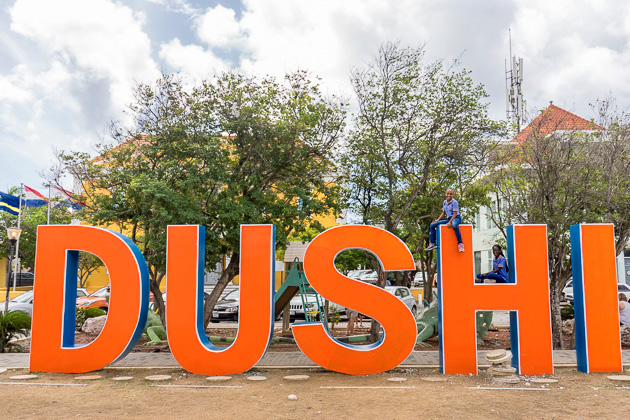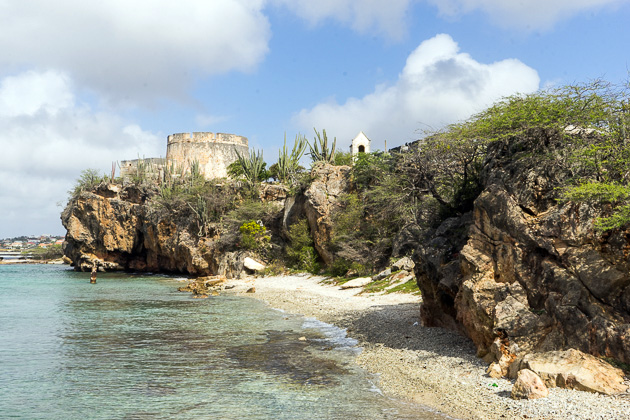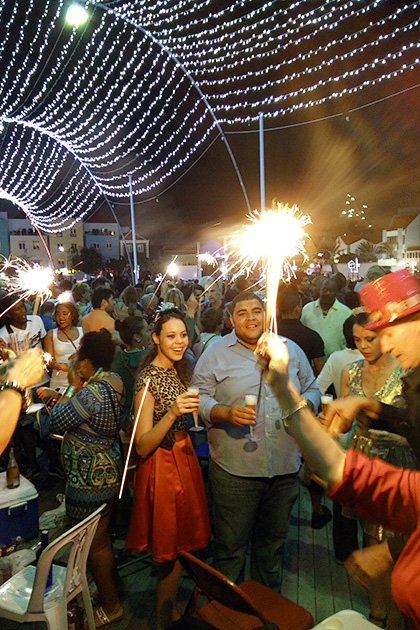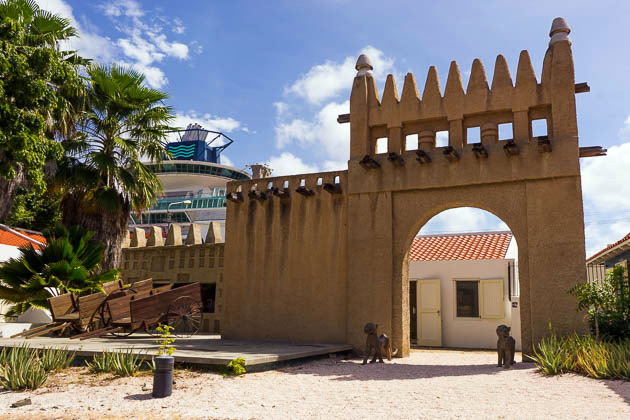Mi Ta Siña Papiamento!
One of Curaçao’s best traits is its delirious language situation. Curaçaoans speak seemingly anything and everything, often all at once. We’ve had people switch from Dutch to Spanish to English on the turn of a dime, as they try and guess our nationality. But the language we most love to hear from Curaçaoans is Papiamento — a creole mix of West African, Spanish, Portuguese, Dutch, English, and even some Arwak.

Papiamento is the language of the ABC Islands: Aruba, Bonaire and Curaçao. On Curaçao and Aruba, it has been recognized officially since 2007, but its history is much older than that. This is a creole language which developed in the Caribbean as a way for Africans from various regions to communicate both with each other, and with the Europeans. Today, it has around 300,000 speakers, which places it right alongside Icelandic (another crazy language we have some experience with.)
Learning Papiamento isn’t strictly necessary for a visitor to Curaçao, since almost everyone here speaks English, but I picked up a book and have taught myself some phrases. They love it when you make an effort, and whooping laughter have greeted my halting attempts to say things like “Good day. Where is the store? This is a book. This is a red book.” Of course, as soon as they start testing my knowledge, I can’t keep up. It’s alright; no Curaçaoan would expect a foreigner to really speak Papiamento, but they appreciate even the most token of efforts.
My learning has been helped by two useful aspects of the language. (1) It’s very close to Spanish, and if you don’t know a word, the Spanish is often close enough to suffice. Agua = Awa, Amigo = Amigu, Hombre = Homber. And usually the words which aren’t of Latin derivation come from the Dutch/Germanic: Boek (Book) = Buki, Vork (Fork) = Forki.
(2) There is almost no conjugation. For example, the verb for “to be” is “ta”, and it stays the same regardless of the subject:
| I am | Mi ta | We are | Nos ta | |
| You are | Bo ta | You (pl) are | Boso ta | |
| He is | É ta | They are | Nan ta |
In other words: Dushi Papiamento ta fásil!
Of course, there’s a lot more to any language than first meets the eye, and regardless of its relative simplicity, when Curaçaoan gets going in Papiamento, I don’t understand a word. But it doesn’t bother me at all… disregard my confusion and continue speaking, señor! Because I could listen to Papiamento all day long.



